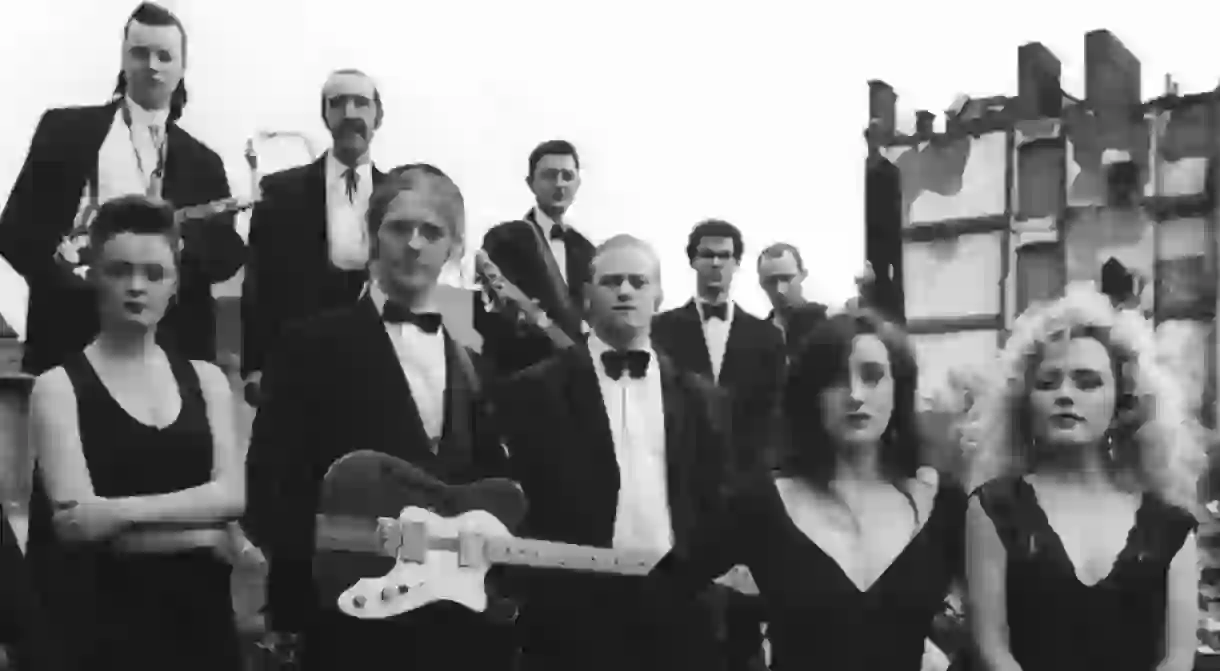Irish Phrases and Slang Terms You Need To Know

Though Ireland became a predominantly English speaking country around the turn of the 19th century, the version of the English language spoken there has more than a few variations from the original. Whether you’re visiting for a first time or just trying to watch an Irish film without needing subtitles, here are some Irish slang terms you’ll need at your disposal.
If you want to put your new knowledge to use, be sure to book ahead for the best tours of Ireland.
Phrases:
Dia dhuit (“Dee-ah gwit”)
Meaning: ‘Hello’ in Irish.
It is the standard Irish greeting that you’ll hear all across the country. This phrase reflects the country’s religious history. Its literal meaning is “God be with you.”
Conas atá tú? (“Cunnus ataw too?”)
Meaning: ‘how are you?’ in Irish.
Generally the second step in beginning a conversation as Gaeilge (in Irish). In some areas the “a” at the beginning of “atá” is left off, changing the phrase to “Conas tá tú?,” but the meaning is the same.
Pionta Guinness, le do thoil (“Pyunta Guinness, leh duh hull”)
Meaning: A pint of Guinness, please!
If you want to order a pint of Ireland’s unofficial national beverage in Irish, just say the above. Obviously, the name “Guinness” can be switched out for Heineken or anything else you might like a pint of.
Sláinte (“Slawn-cha”)
Meaning: Cheers!
When you’re handed your pint of Guinness, raise it and say “Sláinte!” This Irish drinking toast is straight to the point, translating simply as “health.”
Go raibh maith agat (“Guh rev mah agut”)
Meaning: Thank you.
If someone does something nice for you, you can respond with this phrase. It’s how the Irish show gratitude in their native tongue.
Slán (“Slawn”)
Meaning: Goodbye.
When you’re leaving someone and wishing them farewell, you can say “Slán” or “Slán abhaile” (“Slawn a-wal-ya”). The latter literally means “Safe home.”
Slang:
Craic
The word craic is used to refer to two things in Ireland: fun and news. It’s so widely associated with the country that many don’t realise the term didn’t actually originate there – instead it comes from the Middle English crak, meaning loud conversation. ‘What’s the craic?’ – meaning ‘What’s new?’ – can be used by way of greeting in Ireland, and an entertaining person or event is said to be ‘good craic’. (The word ‘gas’ is sometimes used in a similar way, to mean funny or entertaining.) If a night out was particularly good, people in certain areas might say that ‘The craic was 90’ – thought to refer to miles per hour.
Example: ‘I went to that party last night, it was good craic.’
Grand
Irish people have reinterpreted the word ‘grand’ and given it their own meaning, a fact which often results in confusion for foreign visitors. While the English version of grand means magnificent or imposing, in Ireland it usually means just fine or adequate – if you ask an Irish person how they are they will generally respond with a middle-ground ‘I’m grand’, rather than ‘fantastic’ or ‘terrible’. ‘That’s grand’ is used in Ireland to communicate ‘That’s fine with me.’ This versatile term can also be used to reassure someone, for example if someone apologises to you, you can respond with ‘Don’t worry, you’re grand.’
Example: ‘I was sick on Thursday, but I was grand again by the weekend.’
Gaff

In Ireland, the word ‘gaff’ means ‘house’. The term ‘free gaff’ is often used by teenagers to describe the situation when their parents go away for a night, usually meaning there will be a party. Using ‘gaff’ to mean house is apparently also common in Scotland, parts of England and Wales.
Example: ‘I left my favourite jacket over at Aoife’s gaff yesterday.’
Take The Piss
‘Taking the piss’ isn’t unique to Ireland – it’s a Commonwealth term also frequently used in the UK, South Africa, New Zealand and Australia. But for those who haven’t heard it before, to ‘take the piss’ out of someone means either to mock or mimic someone, to joke with them or subject them to ridicule. It can also mean to take liberties at others’ expense or be unreasonable, as in the example below.
Example: ‘We’ve been waiting an hour for this person, they’re taking the piss.’
Deadly

In the same way that ‘grand’ means something different from its traditional meaning in Ireland, ‘deadly’ does too. It might seem odd to use a word whose literal translation means ‘causing or able to cause death’ to describe something in a positive way, but the Irish use the word ‘deadly’ to signify that something is excellent. They aren’t the only ones to do this – apparently Australians use ‘deadly’ as a compliment as well.
Example: ‘That place we went for dinner last week was deadly.’
Yoke
In Irish slang, the word ‘yoke’ doesn’t have anything to do with eggs. Instead, it’s another way of saying ‘thing’. So if someone in Ireland sees an object that they’ve never seen before, they will commonly be heard to ask, ‘What’s that yoke there?’
Example: ‘Can you pass me that yoke you use to wipe the windscreen?’
The Jacks
Among Irish slang words, the word ‘the jacks’ means ‘toilet’, most commonly used to refer to public bathrooms. Every Irish person knowns what this term means, but few know why they use it – indeed it’s difficult to find a solid explanation. Some believe it to be derived from the Tudor English term ‘jakes’, first used in the 16th century.
Example: ‘I’ll be back in a minute, I’m going to find the jacks’.
Locked
Perhaps unsurprisingly given the drunken Irish stereotype, there are several different words in Irish slang that all mean drunk. Locked is just one such term – others include mouldy, ossified, polluted, twisted and langers.
Example: ‘He’s not feeling the best today, he was locked last night.’













